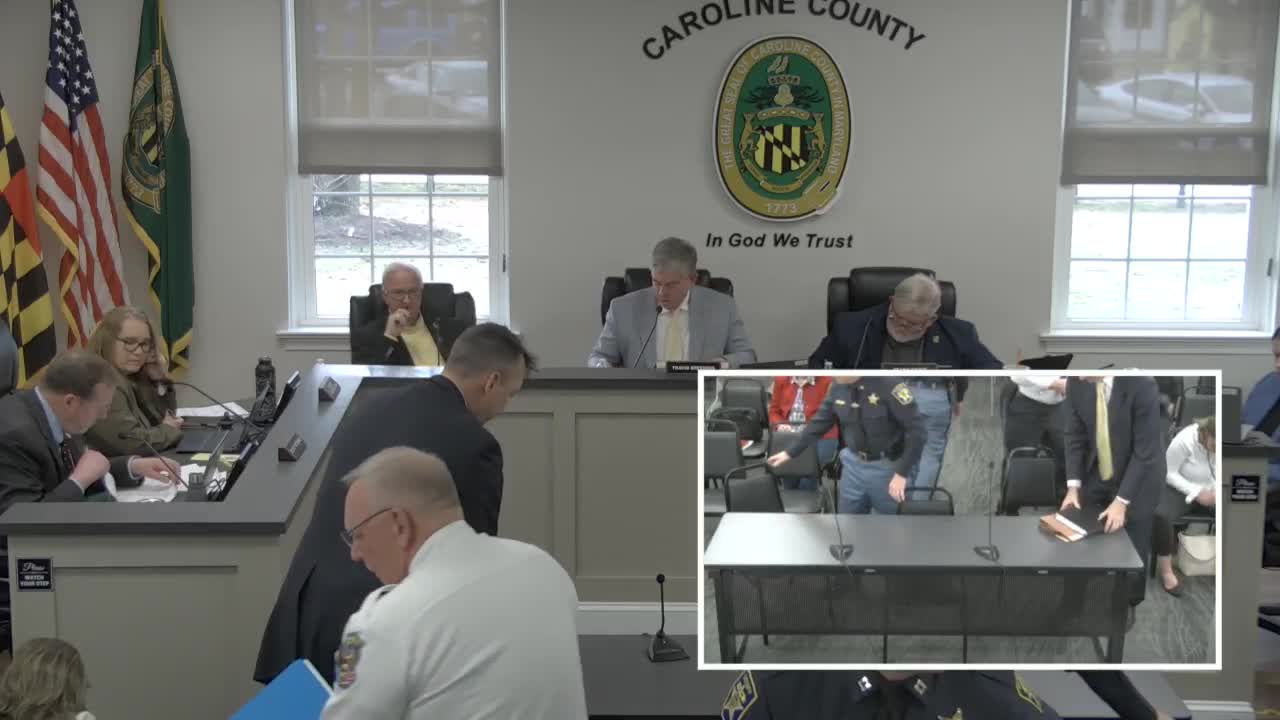Article not found
This article is no longer available. But don't worry—we've gathered other articles that discuss the same topic.
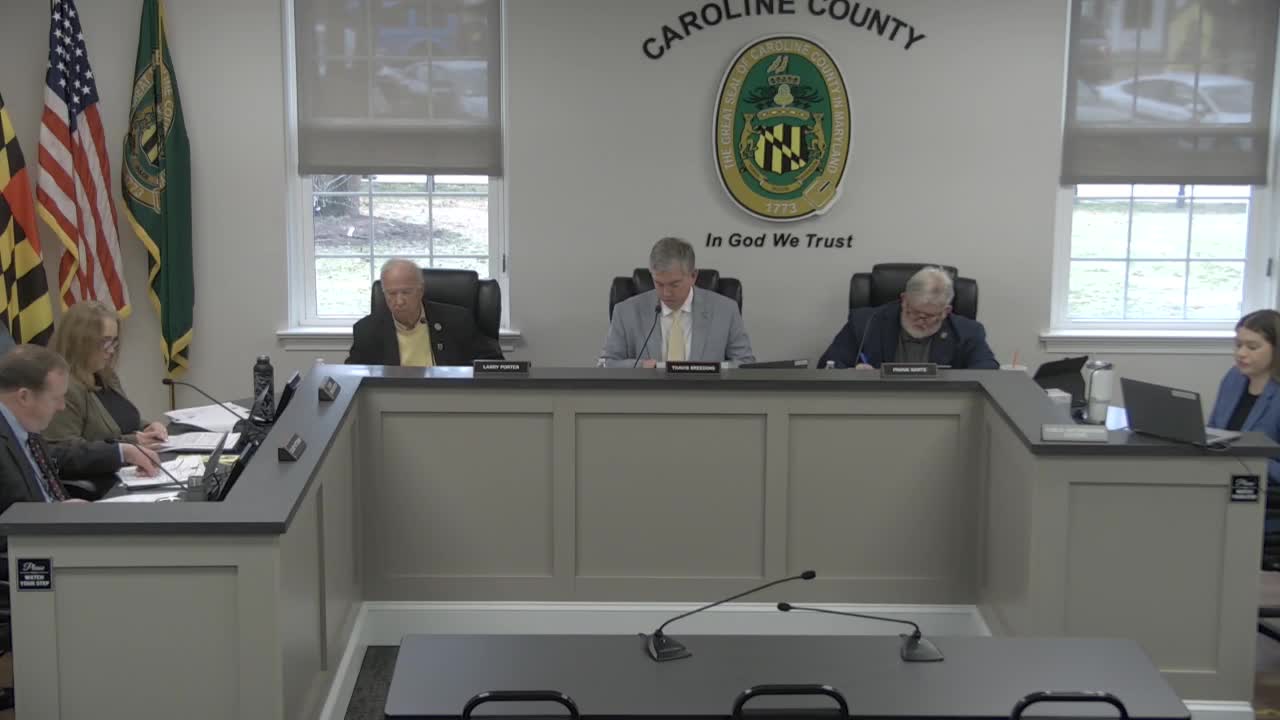
Caroline County reviews draft Police Accountability Board and Administrative Charging Committee ordinance
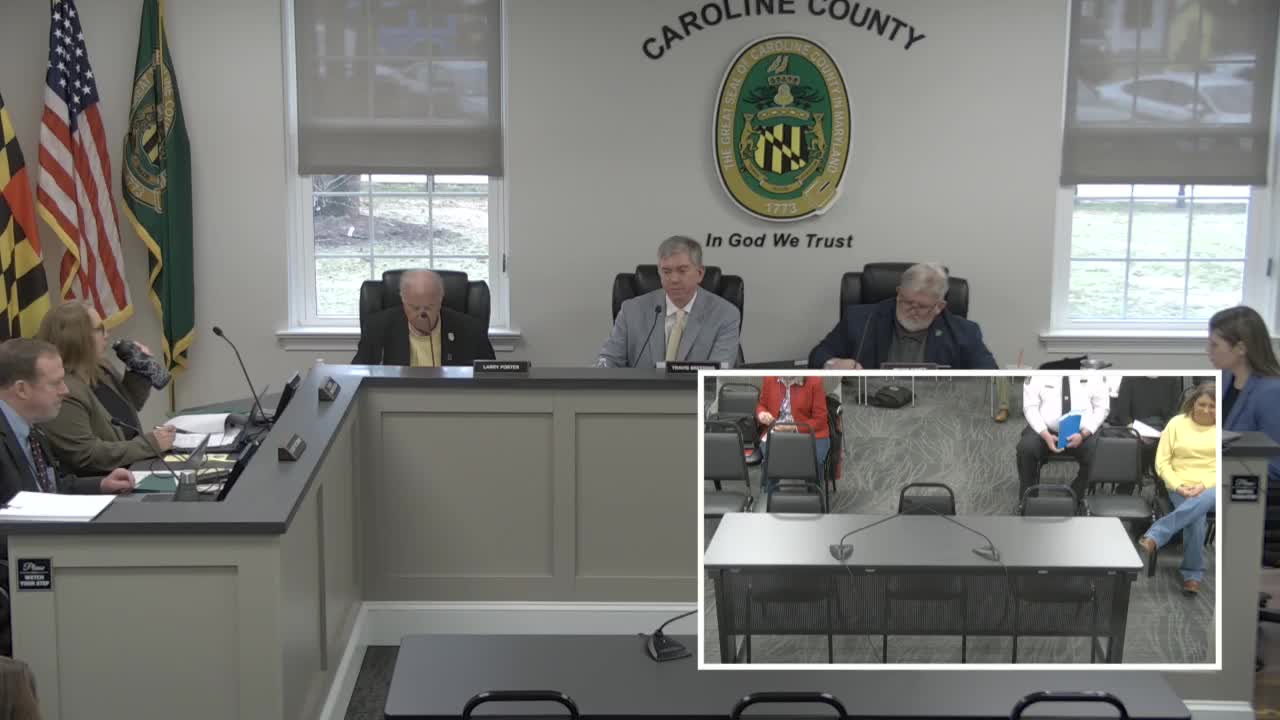
Caroline County proclaims March 2025 Endometriosis Awareness Month
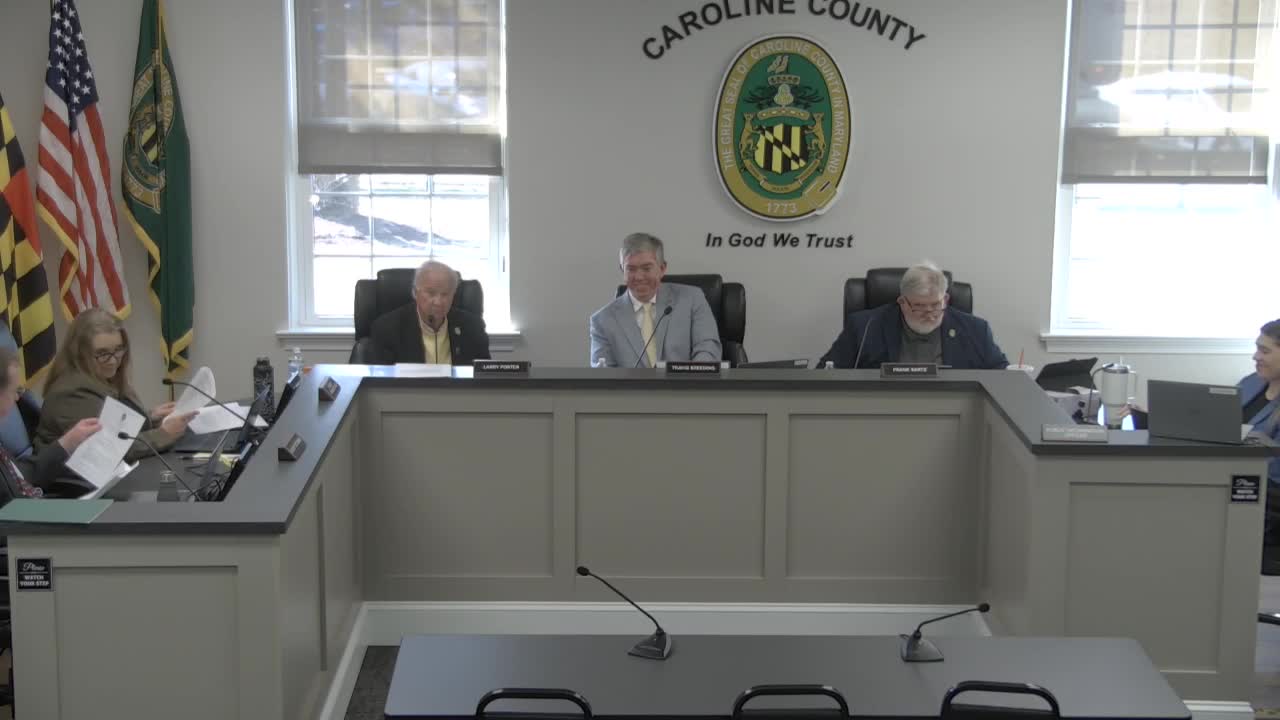
Votes at a glance: Chesapeake College funding request approved; Sharp Road Park MOU extended; consent agenda adopted
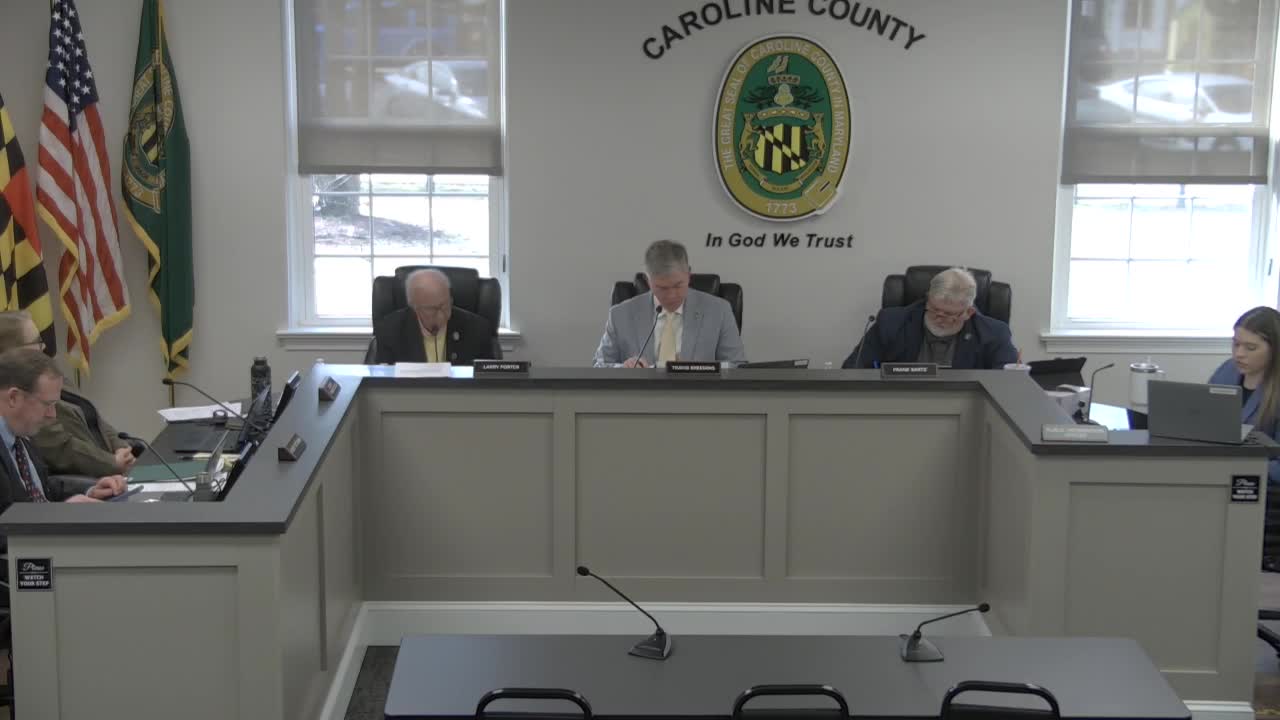
Caroline County commissioners report from Annapolis: solar preemption bill risks local zoning authority, officials say
